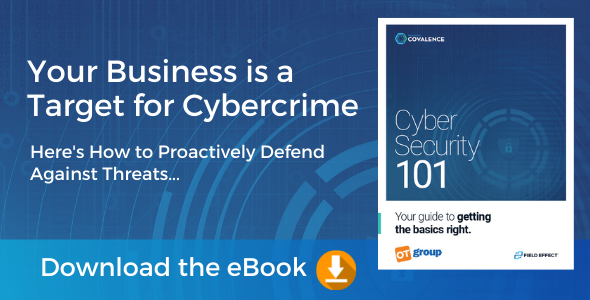Did you know that over 80 percent of hacking-related breaches that target businesses are related to the use of lost or stolen credentials? If this is news to you, you might want to reevaluate how your organization manages its passwords.
Passwords are a crucial aspect of your company’s cybersecurity policy. They provide the first line of defence against unauthorized access to your computer systems and the information stored on them.
The stronger your passwords, the more protected your computer systems will be from hackers and other malicious software.
But it’s not just about having individually strong passwords, it’s about securely managing all passwords across your company’s IT infrastructure and ensuring your employees are following company-wide processes to secure their passwords.
In this blog, we take a look at why password management is so important, the best ways for companies to manage their passwords, as well as some best practices that small businesses can implement to improve their password security measures.
We hope this blog helps your Ontario-based business to enhance its cybersecurity strategy.
Why is secure password management so important?
According to Accenture's Cost of Cybercrime Study, 43 percent of cyberattacks are aimed at small businesses, but only 14 percent of those companies are prepared to defend themselves. That’s why cybersecurity is more important to small businesses now than ever before.
And while it’s not a complete solution, password hygiene is one of the simplest and fastest ways to enhance your company’s security.
Unfortunately, small businesses commonly fail to enforce cybersecurity best practices when it comes to secure password management, effective password hygiene for employees and company-wide best practices.
So, what’s the best way for small businesses to manage their passwords?
The first step to gaining control and enhancing your password security is to properly manage all passwords across your organization. That means moving away from insecure methods such as spreadsheets, documents or notes to store passwords and moving towards a password manager.
A password manager, such as LastPass, is a place for your business to store, encrypt and generate unique passwords for each website, account or system that every team member across your company uses.
A password manager assists in storing, generating and retrieving complex passwords, which are saved in an encrypted vault secured by a master password. This allows everyone across your organization to use stronger passwords that better secure your systems.
Password best practices for small businesses
#1 - Set up password strength requirements for employeesThe vast majority of organizations are still letting their employees set their own passwords. The result? Most staff members choose simple, insecure passwords simply because they are easier to remember. It’s truly shocking the amount of people who use ‘1234’ or ‘password’ to secure their systems. This poses a cybersecurity risk for your business. Instead, your company should require a certain level of password strength from its team members, including upper and lowercase letters, numbers, as well as special characters.
#2 - Establish who can access which accountsIt’s likely unnecessary for every team member in your organization to have access to your company’s most sensitive information. The more people with access, the more entry points a hacker has to make their way into your system. Delegate access to those who truly need it, and evaluate who needs access on a frequent basis.
#3 - Use your password managerWe spoke about the use of a password manager earlier in this blog, and the amazing benefits they can bring to managing and storing your company’s passwords in one secure location. Just make sure you actually use it. It’s crucial that passwords are updated in the software when they change.
#4 - Encourage (or require) employees to frequently change their passwordsWithout a gentle push, your team members are never going to change their passwords. Yet the reuse of passwords over extended periods of time is a huge contributor to the increasing hacking rates on small businesses. With that in mind, make it a requirement for your employee to change their passwords, for all software and systems, every few months. This is particularly important following any kind of security issue.
#5 - Educate your employees on the importance of password hygieneYou employees have enough on their plate without having to worry about the effects of cybersecurity on your business. There’s no way they have the time to proactively research and act on something that isn’t in the realms of their job description. That’s why it’s crucial that you educate your team members on the importance of good password hygiene and what steps they need to take to adopt it.
Want to learn more about improving your cybersecurity through secure password practices? Contact OT Group today. Our team of Ontario-based IT support specialists would love to help.




.png)

